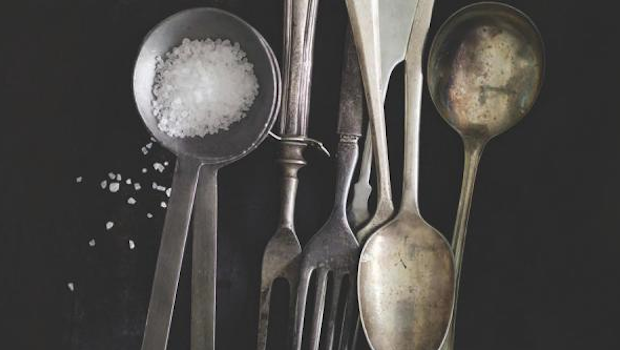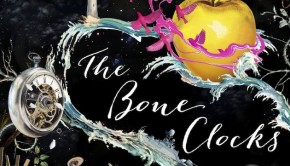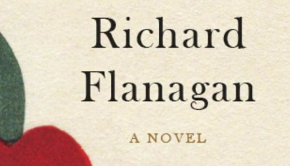Consider the Fork by Bee Wilson
| Press reviews | Buy the book | Have your say |
Blurb: A wooden spoon – most trusty and loveable of kitchen implements – looks like the opposite of ‘technology’, as the word is normally understood. But look closer. Is it oval or round? Does it have an extra-long handle to give your hand a place of greater safety from a hot skillet? Or a pointy bit at one side to get the lumpy bits in the corner of the pan? It took countless inventions to get to the well-equipped kitchens we have now, where our old low-tech spoon is joined by mixers, freezers and microwaves, but the story of human invention in the kitchen is largely unseen. Discovering the histories of our knives, ovens and kitchens themselves, Bee Wilson explores, among many other things, why the French and Chinese have such different cultures of the knife; and why Roman kitchens contain so many implements we recognize. Encompassing inventors, scientists, cooks and chefs, this is the previously unsung history of our kitchens.
(Particular Books, 2012)
Jemima Lewis, The Mail on Sunday
“Bee Wilson belongs to a rare breed: the academic who can write. This book is dense with research, all of it rendered highly palatable. I think I understood all the science (except, perhaps, how fridges work — and I defy anyone to explain that in layman’s terms). The history comes in delicious nuggets of the kind that one immediately wants to pass around in conversation.”
Lucy Lethbridge, The Observer
“Wonderful … Witty, scholarly, utterly absorbing and fired by infectious curiosity, Consider the Fork wears its impressive research lightly; Wilson has given us a long view on everyday life — the early experiments of our primitive ancestors cast a long and complex shadow over the meals we eat.”
Raymond Sokolov, Literary Review
“Learned yet delightful … Wilson’s tone … matters greatly, because this is a history of technology with narrative ambitions that are disarmingly literary. A sign of her success is that the straightforward literary references fit right in with discourses on such heavy-duty stuff as the QK707 magnetron that powered early microwaves or the importance of salt in medieval times.”
Russ Parsons, The Los Angeles Times
“Reading the book is like having a long dinner table discussion with a fascinating friend. At one moment, she’s reflecting on the development of cast-iron cookware, then she’s relating the history of the Le Creuset company and the public’s changing tastes in color and then she’s reminiscing about her mother-in-law’s favorite blue pots … a pure joy to read.”
Molly Guinness, The Spectator
“If you thought kitchen utensils a rather narrow field, think again … The range of her sources is a delight … One of the most charming things about this book is the way Wilson gamely conducts experiments in her own kitchen.”
Jane Shilling, The Daily Mail
“Wilson’s book is diligently researched and she has a sharp eye for a vivid historical detail. Tender-hearted readers will be pained by her description of the unfortunate ‘turnspit’ boys who spent their lives half-naked and half-roasted, turning the spits in Henry VIII’s kitchens at Hampton Court palace. ‘To be a turnspit was deemed suitable work for a child well into the 18th century,’ Wilson points out.”
James McConnachie, The Sunday Times
“Fascinating and entertaining … Perhaps the most delicious of the host of titbits Wilson serves up is that the tin-opener was invented in 1855, almost 40 years after the tin. So if you wanted to open a can of bully beef or peaches in the 1840s you followed the instruction to “cut around the top near the outer edge with a chisel and hammer”.”
Melissa Katsoulis, The Daily Telegraph
“If slightly chilled in tone compared to the passion we have come to expect from our food writers, this broad survey makes palatable thousands of years of theory and experience and concludes that “however radical we may believe ourselves to be in our everyday beliefs, when we step into a kitchen most of us become conservatives. We chop food with knives, stir it with spoons and cook it in pots. As we stand in our modern kitchens, we still use the colanders, the pestles and the frying pans of the ancients.” And why not?”
Steven Poole, The Guardian
“Apparently the reader must first be persuaded that food is a respectable topic … Once the special pleading is out of the way, the argument is clear and persuasive … Inevitably, there is occasionally something of the Private Eye column “Me and My Spoon” about all this, not least when the author is actually talking about spoons.”
Buy the book
Amazon | Foyles | Hive | Waterstones
OMNISCORE:











